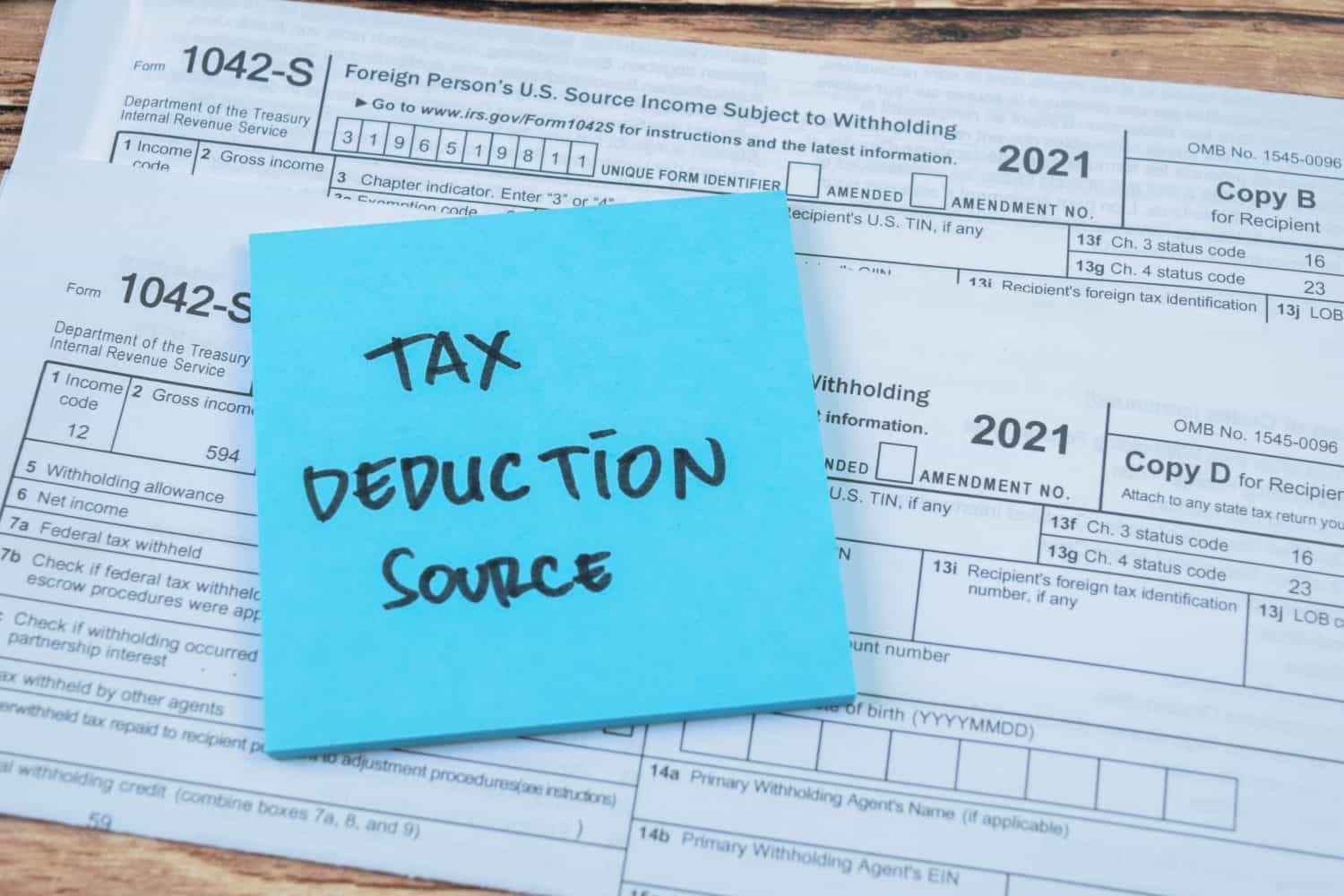Personal Finance
4 Tax Breaks You Think You're Getting but Likely Don't Qualify For

Published:

Deductions exempt a portion of your income from taxes.
There are certain deductions you might think you qualify for when you don’t.
It’s best to consult a professional to maximize your tax benefits.
Are you ahead, or behind on retirement? SmartAsset’s free tool can match you with a financial advisor in minutes to help you answer that today. Each advisor has been carefully vetted, and must act in your best interests. Don’t waste another minute; get started by clicking here here.(Sponsor)
No matter how much money you make, you’d probably like to keep as much of it as possible for yourself. And capitalizing on tax deductions is one way to make that happen.
What a tax deduction does is exempt a portion of your income from taxes. It’s not quite the same thing as a tax credit, which is a dollar-for-dollar reduction of your tax liability. But both can serve a similar purpose — making it possible for you to legally pay the IRS less money.
That said, just because the IRS makes certain tax deductions available doesn’t mean you’ll be eligible to claim them. Here are a few tax deductions you might think you can get — but you can’t.
If you own a home that has a mortgage, the interest you pay on it may be deductible. But that only holds true if you itemize on your taxes. And it may not make sense to do so.
In 2025, the standard deduction for single tax-filers is $15,000, or $30,000 for married couples filing jointly. Unless you have a large total of deductible expenses, it may not make sense to itemize.
Healthcare can be a huge expense, even if you don’t have major medical issues. The good news is that you can claim a medical expense deduction on your taxes — but only if your out-of-pocket medical expenses exceed 7.5% of your adjusted gross income (AGI).
So let’s say your AGI is $80,000. To claim a medical expense deduction, you’d need your healthcare spending to exceed $6,000. And you’d then only be eligible to claim expenses beyond the $6,000 mark.
A lot of people are working from home full-time in the wake of the pandemic. But working from a home office does not automatically mean you can claim a home office deduction.
The home office deduction is only available to people who are self-employed and use a home office as their primary place of work. A home office can also only be claimed if that space is solely dedicated to work. If you’re a salaried employee with a dedicated home office you use 100% of the time, you can’t claim this deduction.
If you own a home, you know full well that property taxes are an expense you’re liable for. But it’s not a given that you’ll get to claim your property taxes in full.
The Tax Cuts and Jobs Act limited the state and local tax, or SALT, deduction to $10,000. This means that if you live in a state with high property (or income) taxes, you’re probably not going to get to capture the full value of your deduction because of that $10,000 limit.
For example, if your property tax bill is $15,000, which is not unheard of in some states, you’re automatically losing out on a portion of this deduction due to the $10,000 cap. And that’s not even accounting for income taxes.
It’s important to know your tax deductions inside and out – and to have realistic expectations as to whether you can claim them. It’s a good idea to consult a tax professional if there are deductions you’re not sure you’re eligible for. Claiming the wrong ones is a great way to get your tax return audited, which is something you’d probably rather avoid.
Retirement planning doesn’t have to feel overwhelming. The key is finding expert guidance—and SmartAsset’s simple quiz makes it easier than ever for you to connect with a vetted financial advisor.
Here’s how it works:
Why wait? Start building the retirement you’ve always dreamed of. Click here to get started today!
Thank you for reading! Have some feedback for us?
Contact the 24/7 Wall St. editorial team.